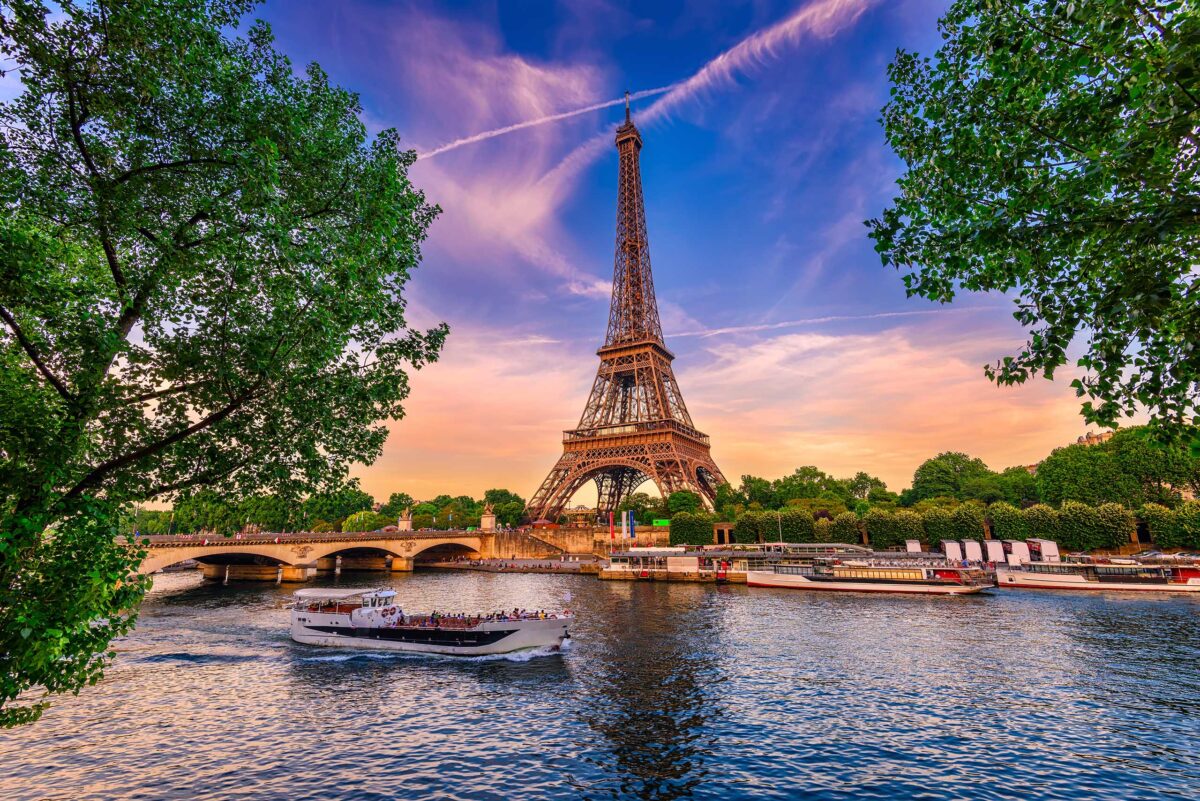The 10 most famous landmarks to visit in France

France boasts some of the world’s most famous landmarks, each telling a story of history, art, and cultural heritage. The Eiffel Tower in Paris is a towering symbol of France, built by Gustave Eiffel in 1889. It offers panoramic views of Paris and stands as an engineering marvel. Near Paris, the Palace of Versailles was once the residence of French kings. Its opulent architecture, sprawling gardens, and the Hall of Mirrors, therefore, reflect the grandeur of the French monarchy. Additionally, it’s a UNESCO World Heritage site and a stunning example of Gothic architecture. Moreover, Notre-Dame Cathedral, located on the Île de la Cité in Paris, is a masterpiece of French Gothic architecture, known for its iconic towers and intricate stained-glass windows. Consequently, these landmarks, along with others like the Palace of the Popes in Avignon and Sainte-Chapelle in Paris, attract millions of visitors each year, offering a glimpse into France’s rich cultural legacy and artistic achievements.

Here are some of the most famous landmarks in France.
1.Paris’s Eiffel Tower:

Among the most well-known buildings on the entire globe is the Eiffel Tower. Gustave Eiffel constructed the towering structure for the 1889 World’s Fair in Paris, France. The tower is 324 meters tall and constructed of iron.
2. Paris’s Louvre Museum:
The Louvre Museum, a historic landmark in Paris, is the biggest museum of art in the world. It is well-known for holding thousands of pieces of art, such as the Venus de Milo and the Mona Lisa. Art enthusiasts should not miss the Louvre because of its impressive collection and opulent architecture.
3. Palace of Versailles, Versailles:
During the 17th and 18th centuries, the Palace of Versailles served as the primary abode of the French monarchs.. It is located close to Paris.
4. Mont Saint-Michel, Normandy:

The scenic island community of Mont Saint-Michel is located in Normandy, France. As a result, the abbey gives expansive views of the water below and is, undoubtedly, a magnificent example of Gothic architecture.
5. Palace of the Popes, Avignon:
Located in Avignon, southern France, is a medieval palace known as the Palace of the Popes. When the papacy was temporarily moved from Rome to Avignon in the fourteenth century, it served as the home of multiple popes. The palace attracts tourists from all over the world with its striking architecture and historical value.
6.Paris’s Sainte-Chapelle:
The magnificent Gothic chapel known as Sainte-Chapelle is situated in Paris’s ancient Palais de la Cité complex. The chapel is a treasure of medieval architecture because of its elaborate design and vivid colors.
7. Arc de Triomphe, Paris :

At the westernmost point of Paris’ Champs-Élysées, indeed, stands the imposing Arc de Triomphe. Specifically, Napoleon Bonaparte ordered it in 1806 as a way to commemorate his military prowess.
8. Château de Chambord, Loir-et-Cher:
France’s Loire Valley is home to the magnificent Renaissance castle known as Château de Chambord. Specifically, it was constructed in the early 16th century and is renowned for its expansive hunting grounds and unique French Renaissance architecture.
9. Pointe du Gard, Haute-Accinée:
In southern France’s Occitanie area, there is, in fact, the Pont du Gard, an antique Roman aqueduct bridge. Moreover, the bridge is surrounded by breathtaking natural beauty, and, consequently, it is a wonder of ancient engineering.
10. Notre-Dame Cathedral, Paris:

Paris’s Notre-Dame Cathedral is, indeed, a magnificent example of French Gothic design and is situated on the Île de la Cité. Consequently, Notre-Dame has long served as a historical marker for Paris.
Conclusion
Visiting France’s famous landmarks, therefore, is an unforgettable experience that, in turn, showcases the country’s rich history and artistic achievements. Whether marveling at the Eiffel Tower in Paris, exploring the art treasures of the Louvre Museum, or wandering through the gardens of the Palace of Versailles, each landmark offers a glimpse into France’s cultural heritage. For travelers planning to visit these iconic sites, it’s important to consider France visa requirements. Depending on your nationality, you may need a visa to enter France. It’s advisable to check the latest visa regulations and apply well in advance to avoid any delays.
Exploring Mont Saint-Michel in Normandy or, moreover, admiring the intricate architecture of Notre-Dame Cathedral in Paris are experiences that undoubtedly highlight the beauty and diversity of French landmarks. In fact, each of these sites tells a unique story; specifically, from medieval times to the present day, they contribute significantly to France’s reputation as a global cultural hub. In conclusion, visiting France’s most famous landmarks promises not only breathtaking views and cultural immersion but also, in addition, a journey through centuries of history and artistry.









